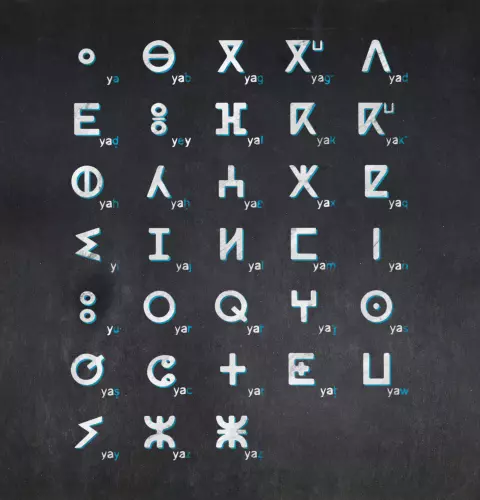
Blog
Languages Spoken in Morocco: Handy Phrases and Communication Tips
Discover the languages spoken in Morocco like Arabic, French, Berber, and Spanish. Learn key phrases, communication etiquette, linguistic diversity, and tips for conversing during your visit.
Introduction
An integral part of experiencing Moroccan culture is embracing the fascinating mosaic of languages flavoring this crossroads country. As you wander through energetic souks and relax in candlelit riads, you’ll quickly realize Arabic is just one thread in a rich linguistic tapestry. Berber dialects, French, and Spanish also intertwine reflecting Morocco’s diverse history and influences. Don’t let language be a barrier to connecting during your travels. Focus on picking up a few handy phrases, and Moroccans will enthusiastically help you navigate their linguistic landscape with smiles and appreciation for trying.
This guide will help demystify Morocco’s multilingual reality. You’ll learn key expressions to aid interactions, tips to communicate nonverbally, and how to thoughtfully engage with locals in any language. While English has grown more common in tourist areas, just mastering “hello”, “goodbye” and “thank you” in Darija (Moroccan Arabic) will carry you far. Listen closely, observe cultural cues, and let the welcoming spirit of Morocco transcend vocabulary. Immerse yourself in the music of this crossroads culture, however foreign the words may seem.
Arabic Dialects in Morocco
Morocco boasts multiple forms of Arabic:
- Modern Standard Arabic is used in writing, media, and formal speech. Similar across Arab world.
- Moroccan Darija is the informal local spoken dialect. Derived from Arabic with influences.
- Transliterated Darija basics to know:
“Salam” = Hello
“Bssaha” = Good health to you
“Shukran” = Thank you
“InshaAllah” = God willing
Berber Languages
Berber dialects are widely spoken among Amazigh groups:
- Tashelhit – in the Souss Valley and parts of the High Atlas
- Tamazight – Middle Atlas region and north
- Tarifit – Spoken by the Riffian people in the Rif Mountains
- Useful Berber phrases:
“Azul” = Hello
“Tanmirt” = Thank you
“Ah” = Yes
“Oho” = No
French and Spanish Influences
Remnants of colonial eras persist:
- French is still widely spoken and taught in schools after the French Protectorate (1912-1956).
- Spanish lingers especially in the north from Spanish occupation until the 1950s.
- Helpful French phrases:
“Bonjour” = Hello
“Merci” = Thank you
“Parlez-vous anglais?” = Do you speak English?
- Key Spanish phrases:
“Hola” = Hello
“Gracias” = Thank you
“Hablas inglés?” = Do you speak English?
Learning Just the Basics
Focus on simple expressions for transactions andgreetings:
- “Salam Aleikum” – Hello
- “Inshallah” – God willing
- “Ah” – Yes
- “Laa” – No
- “Maghreb” – Morocco
- “Kidayr?” – How are you?
- “La shukran” – No thank you
Pick up keys words to be courteous and navigate comfortably.
Cultural Communication Tips
Nonverbal cues and manners also speak volumes:
- Greet others respectfully based on age, status and gender. Wait for older people to extend hand first.
- Speak softly and gently, don’t raise your voice even if frustrated.
- Listen carefully when others speak, don’t interrupt.
- Maintain eye contact to show interest in conversations.
- Smile warmly when appropriate to put others at ease.
- Mirror body language you observe locally for what’s socially comfortable.
- Patience and slowing down go a long way despite language gaps.
Well-mannered interaction succeeds even with minimal shared vocabulary.
Conclusion
At first, Morocco’s blend of Arabic, French, Spanish, and Berber may seem challenging. But languages open doors to human connection, so embrace the variety heard echoing in the medinas. Locals will appreciate any effort to exchange greetings, give thanks, and identify yourself as a visitor. Focus on picking up polite expressions, listening actively, and observing cues. Though accents and idioms differ from region to region, the welcoming spirit of the Moroccan people shines through universally.
With cultural sensitivity, the linguistic differences quickly smooth to reveal common ground. Don’t let terms foreign to your ear prevent you from forging new friendships. Find the harmony in the melodious blend of voices that gives Moroccan landscapes their singular soundtrack. Let the familiar essence hidden beneath strange vocabularies draw you nearer until distance disappears. After all, no intricate grammar can capture Morocco’s generosity of spirit – some bridges we build simply by taking the first step.
Get Inspired and Plan Your Trip Today!
- Check out our Morocco Private Tours to see all the fantastic places you can visit in Morocco.
- Customize your own tour using the form on our website to create a vacation that is perfect for you.



FAQs
The main languages are Moroccan Arabic (Darija), Standard Arabic, French, Berber dialects like Tashelhit, and some Spanish. English is also increasingly used in tourist areas.
English is more widely popular now in the main cities and tourist spots but basic French and Arabic phrases are still useful to learn.
Just learning basic greetings and phrases in Arabic or French will help greatly. Locals appreciate any effort to use local languages.
Moroccan Arabic (Darija) is the informal local dialect. Standard Arabic is mainly for media, education, and formal speech.
Yes, Berber dialects like Tashelhit and Tamazight are widely spoken especially in rural areas and by the Amazigh people. Common phrases are easy to learn.
Arhhal
Moroccan Travel Expert
Plan an Entertaining Moroccan Holiday Now!
We can help you fit your stay and experience within your allotted budget.
